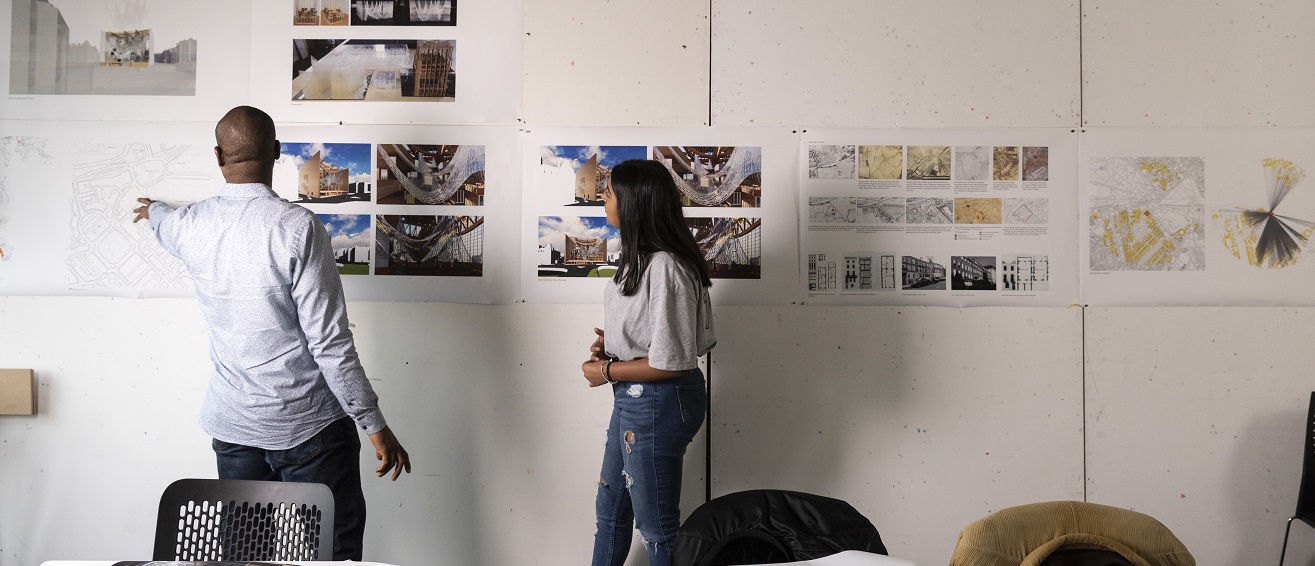Search our site...
Search module
Overview
Building a great future
Our highly creative degree programme, accredited by the Royal Institute of British Architects (RIBA) and Architects Registration Board (ARB), offers students a wide foundation of architectural knowledge. You will learn to draw, model, write, and, above all, define and solve problems that have genuine social purpose.
You will study the exploration of design; review the histories and theories of architecture; and investigate structures, construction, and design for sustainability.
Studying with us will help you determine your own interests and find your individual voice. We will also introduce you to the necessary skills for professional practice. When you successfully graduate, you will have completed the first step towards becoming a qualified architect.
Student showcase
Each year, we hold an End of Year Show in the LSBU Hub - a building which was awarded the prestigious Higher Education and Campus Award at the Architects' Journal Retrofit Awards. The End of Year Show is an opportunity for students from across all years and Architecture programmes to showcase their creativity and network with future employers from leading architecture firms in the UK and overseas.
You can browse some of the work from the 2023 show on Dezeen.
Fantastic facilities
You will benefit from our extensive range of specialist facilities, including:
- Architecture Design Studios with inspiring and unrivalled views over the City of London;
- a Building Information Modelling (BIM) Centre;
- a Digital Architecture and Robotic Lab;
- a Strengths of Materials Lab;
- a wood workshop, laser cutting and 3D printing.
Why Architecture at LSBU?
High earning potential - our Architecture, Building and Planning graduates have a median graduate salary of £33,700 - the second highest graduate salary for this subject area in the UK (2022 LEO Data)
Our students regularly win prestigious RIBA Awards.
| ModeFull-time | Duration3 years | Start dateSeptember | Application codeK100 | Application method UCAS |
| ModePart-time | Duration5 years | Start dateSeptember | Application code102 | Application method Direct to LSBU |
Location
London South Bank University student union is located at 103 Borough Rd, London SE1 0AA.
If you are visiting our Southwark Campus, you may wish to use our downloadable campus map (PNG File 466 KB). For information on accessibility, see our DisabledGo access guides. See our location page for more details.
Entry Level Requirements
112 UCAS points
Or equivalent level 3 qualifications.
If you do not meet the entry criteria above we also review any previous skills, knowledge or experience you have gained outside of your education and are happy to talk through any extenuating circumstances you feel relevant.
Visit UCAS for guidance on the tariff.
Choose your country
Select country here:
Missing English and Maths qualifications?
If you do not have the required English and Maths qualifications needed to satisfy the entry requirements for this programme, we have courses available at our partner College that you can take to upskill in these areas. Find out more at South Bank College.
Advanced entry
If you have already completed some studies at another university, we may be able to consider you for advanced entry. Please see our advanced entry page for more information.
United Kingdom
£9250
Tuition fees for home students
International
£15900
Tuition fees for international students
Tuition fees are subject to annual inflationary increases. Find out more about tuition fees for Undergraduate or Postgraduate courses.
-
Part-time
part-time
BA (Hons) Architecture (PT) - Year 1
UK fee: £5550 International fee: £9540 AOS/LSBU code: 102 Session code: 1PS00 Total course fee: UK: £27750 International: £47700 BA (Hons) Architecture (PT) - Year 2
UK fee: £5550 International fee: £9540 AOS/LSBU code: 102 Session code: 2PS00 Total course fee: UK: £27750 International: £47700 BA (Hons) Architecture (PT) - Year 3
UK fee: £5550 International fee: £9540 AOS/LSBU code: 102 Session code: 3PS00 Total course fee: UK: £27750 International: £47700 BA (Hons) Architecture (PT) - Year 4
UK fee: £5550 International fee: £9540 AOS/LSBU code: 102 Session code: 4PS00 Total course fee: UK: £27750 International: £47700 BA (Hons) Architecture (PT) - Year 5
UK fee: £5550 International fee: £9540 AOS/LSBU code: 102 Session code: 5PS00 Total course fee: UK: £27750 International: £47700 -
Full-time
full-time
BA (Hons) Architecture (FT) - Year 1
UK fee: £9250 International fee: £15900 AOS/LSBU code: 101 Session code: 1FS00 Total course fee: UK: £27750 International: £47700 BA (Hons) Architecture (FT) - Year 2
UK fee: £9250 International fee: £15900 AOS/LSBU code: 101 Session code: 2FS00 Total course fee: UK: £27750 International: £47700 BA (Hons) Architecture (FT) - Year 3
UK fee: £9250 International fee: £15900 AOS/LSBU code: 101 Session code: 3FS00 Total course fee: UK: £27750 International: £47700
For more information, including how and when to pay, see our fees and funding section for undergraduate students.
Please check your fee status and whether you are considered a Home, EU or International student for fee-paying purposes and for our regulatory returns, by reading the UKCISA regulations.
See our Tuition Fees Regulations (PDF File 391 KB) and Refund Policy (PDF File 775 KB).
Possible fee changes
The University reserves the right to increase its fees in line with changes to legislation, regulation and any government guidance or decisions.
The fees for international students are reviewed annually and the University reserves the right to increase the tuition fees in line with the RPIX measure of inflation up to 4 per cent.
Scholarships
We offer several types of fee reduction through our scholarships and bursaries. Find the full list and other useful information on our scholarships page.
International students
The course is not currently open to international students.
International (non Home) applicants should follow our international how to apply guide.
Home
| Mode Full-time | Duration 3 years | Start date September | Application code K100 | Application method UCAS |
| Mode Part-time | Duration 5 years | Start date September | Application code 102 | Application method Direct to LSBU |
Accommodation
Once we have made you an offer, you can apply for accommodation. You can rent from LSBU and you’ll deal directly with the university, not third party providers. That means we can guarantee you options to suit all budgets, with clear tenancy agreements and all-inclusive rents that include insurance for your personal belongings, internet access in each bedroom and on-site laundry facilities.
Or, if you’d rather rent privately, we can give you a list of landlords – just ask our Accommodation Service.
Read more about applying for accommodation at LSBU.
Finance
You don't need to wait for a confirmed place on a course to start applying for student finance. Read how to pay your fees as an undergraduate student.
Prepare to start
Applicant events
After you’ve received your offer we’ll send you emails about events we run to help you prepare for your course.
Enrolment
Before you start your course we’ll send you information on what you’ll need to do before you arrive and during your first few days on campus. You can read about the process on our Enrolment pages.
This is a highly creative course where design project work is the focus of our studio culture, making up more than 50% of assessed work.
Year 1
We will welcome you into a large studio space, which is then divided into groups working on principles of architectural design and creative practices. Year 01 design studio focuses on sketching, model-making, drawing, site and building visits. Once you have completed your first year of study, you’ll have a wide choice of design studios to choose from where you learn about the many different approaches to architecture and design, whilst working with your peers and independently.
- Design 101
The module introduces key concepts and conveys applicable skills through a series of analytical and observational exercises, short design studies and projects, built upon on a weekly basis. It focuses on investigating context, the use of precedent, and an understanding of space, scale, urban form and the human body. This module seeks to inspire critical awareness of architecture, the city, its concepts, language and representation. Assessment method: 100% coursework. - Design 102
The module consists of speculative, strategic and critical design projects, which examine differentiated conditions (urban, rural, landscape) for architecture. It introduces a variety of different forms and methods of communicating architectural space through three dimensional drawings and modelling, the aim of this module is to develop skills in the representation of three dimensional architectural space and the appropriate examination of materials. Assessment method: 100% coursework. - Design 103
This module integrates knowledge and understanding gained through other modules in the year in areas of design, technology and communications and to bring these together within an architectural design project addressees context, programme and increased organisational complexity. Assessment method: 100% coursework. - Cultural context 1
This module is an introduction to architectural history and theory, providing an outline survey of key concepts, buildings, cities, movements and personalities in the world of architecture. Assessment methods: 50% coursework, 50% exam. - Technology 1
This module comprises of one structure and one construction component, and provides an introduction to structures, materials, construction and environmental principles, as well as an insight into their integration in an architectural design process. Assessment method: 100% coursework. - Communication 1: drawing and digital media
This module comprises an introduction to techniques of 2D and 3D visual communication, including drawing, model making, digital and experimental media. Assessment method: 100% coursework
Year 2
In year 2 you will work on three architectural design projects throughout the year, each with specific themes and context for you to research and explore.
- Design 201: experimental media
This module draws upon references from contemporary arts practice and individual experimentation with a range of digital and analogue media. You'll undertake design projects with the expanded understanding of context from a physical to a wider, systemic and cultural notion, which will be addressed through the design of an object or installation presented in a final design event. This module aims to introduce the themes of second year design, develop your knowledge of and critical capacity in a wider contemporary cultural context and encourage the development of individual working processes and methodologies through observation, reflection and experimentation. Assessment method: 100% coursework. - Design 202
In this module, you'll be invited to investigate the relationship between site, programme, and architectural concepts through the design of enclosing structures. You will learn how to correctly and imaginatively interpret and evolve a brief, its relationship with appropriate architectural concepts including context, scale, space, form, structure and its spatial resolution correctly and imaginati. Assessment method: 100% coursework. - Design 203
This module will require you to develop the comprehensive design of a public building. It builds upon and integrates the objectives set out in earlier design units into a comprehensive design project with an emphasis on exploring the relationship between concept, context, building technology and building resolution. Assessment method: 100% coursework. - Cultural context 2
This module will demonstrate, through a series of case studies, buildings situated in their particular socio-economic, political and physical contexts, from the period after the industrial revolution. Assessment method: 100% coursework. - Technology 2
This module investigates building technology from small to large buildings through precedent studies, with lectures dedicated to traditional, contemporary and emergent construction techniques, it will help you identify and formulate the technological principles to be applied to your design project. Assessment methods: 40% coursework, 60% exam. - Communication 2: digital design
This module uses a discrete design project to familiarise you with the skills, techniques and methodologies pertinent to digital design and automated manufacture. Assessment method: 100% coursework.
Year 3
You will engage with more complex design studio projects, with more time to resolve detailed design solutions, linked to technology and structures.
- Design 301
As the first of the third year design modules, this module is designed to introduce you to the ambition and scope of third year design, set the philosophical and systemic context for the year’s design investigations, and reinforce the importance of group work and peer learning.
It consists of group analysis, group and individual design and focuses on observing, interpreting and positively influencing complex urban relationships. Assessment method: 100% coursework. - Design 302
This module is based in the design studio and generates a detailed analysis of physical, cultural, social and economic context. It develops an understanding of the spatial organisation and form of buildings. You will be asked to investigate an area of the city, from which you will develop a client brief. You will then select one of the sites proposed by the studio tutors, and develop a design for the site, responding to both the context and to the building programme. The module enables you to become aware of design approaches, ideas and methodologies for the final design project in Design 303. Assessment method: 100% coursework. - Design 303: integrated design project
This module will require you to undertake a comprehensive design project consolidating all themes of study. It aims to build directly on the outcomes of the previous design projects and give you an understanding of urban context and spatial organisation. Assessment method: 100% coursework. - Cultural context 3
This module concerns the theoretical underpinnings of architecture and philosophical aspects of its interpretation by exploring the meaning, interpretation, history and relevance of ideas in architecture. You will be asked to analyse and investigate a specific site and to develop an architectural position, which will be used to inform a
given framework brief. The aim is to utilise the design of a building and its physical context to interrogate, test, illustrate and explain an understanding of a specific urban context and its
relationship with an architectural proposal. Assessment method: 100% coursework - Technology 3
The module completes the study of construction technology, environmental design and their application in building design to the level defined in the criteria for RIBA Part 1 and linked to the Design 303 project. - Professional practice
This module fulfils the requirements for knowledge of the wider role and duties of the architect in relation to society and the construction industry as set out in the RIBA Part 1 criteria. Assessment method: 100% coursework.
Key subject areas
- Design
The acquisition of core design skills and knowledge is central to the programme and these are developed through studio activities, and the completion of design projects forming the most significant element in the preparation of the design portfolio. We encourage a creative and analytical approach to design using models, drawings and computer graphics to explore a wide range of design methodologies. Studio activity includes learning how to communicate ideas, both verbally and visually, to tutors and fellow students. The presentation of your work and the feedback you receive is referred to as a 'crit', 'review', or ‘jury’ and is an opportunity for you to explain your approach to the design process - and to clarify your ideas in relation to the work of others. - Technology and environment
Structural, constructional, and environmental technologies are integral parts of the design process from concept to final site ready proposal. In year 1, the principles of these technologies are learnt and this knowledge is developed and applied in years 2 and 3 of the programme. The technology and environment syllabus is delivered in lectures and workshops and generally assessed by means of coursework as an integral part of design studio work. You'll be able to use technology as a driver in architectural thinking and then apply the skills, knowledge and understanding acquired within your design projects. - Cultural context
The three year cultural context programme comprises four history and theory modules. These position the individual student within the wide subject area of architecture, establishing views on the role of architecture within a society’s culture, covering the ethical and rational critique of architecture, and the application of philosophical thought to architecture. The theory modules establish rigour in thinking, critical investigation, the application and organisation of research, writing skills, and referencing. When making your own proposals in the studio, studies in the histories and theories of architecture encourage awareness of architecture from a range of sources, and the diverse design methodologies underpinning these. - Communication
Communications studies involve hand drawing and modelling, and the acquisition of advanced computer skills. Communications 1 introduces both 2- and 3D hand and digital drawing; Digital Media 2 covers the basics of 3D computer modelling and fabrication, and is connected to a studio design project. The understanding of professional drawing and rendering software is an essential part of the programme, and a key skill to ensure employability. - Professional practice
All third year students are introduced to professional practice through a series of lectures and case studies. The lecture-based teaching is delivered by practitioners and representatives from the regulatory bodies. You’ll be required to manage and appraise your own working practices with respect to your final year's work; you are also taught how to prepare a CV and search for work. You are also encouraged to visit an architect's office in preparation for working in practice, and to participate in the RIBA Mentoring scheme.
Careers
Employability Service
At LSBU, we want to set you up for a successful career. During your studies – and for two years after you graduate – you’ll have access to our Employability Service, which includes:
- Free employability workshop and events for student all year round, more details can be found on our event section.
- Online board where you can see a wide range of placements: part-time, full-time or voluntary. You can also drop in to see our Job Shop advisers, who are always available to help you take the next step in your search.
- LSBU Careers Hub offering group workshops on CVs, interview techniques and support, guidance on future careers, as well as loads of career resources, connecting you with employers, exciting events, 1-1 support and relevant workshops.
Our Student Enterprise team can also help you start your own business and develop valuable entrepreneurial skills.
Choose to study architecture and you'll gain more varied skills and employability than almost any other professional subject. Our central London location is the perfect place to find inspiration, as well as build your professional networks and take advantage of work experience opportunities. Our strong design and academic reputation creates excellent links into practice.
Your career
To qualify as an architect, you need to complete a 3 year (or part time equivalent ) bachelor's degree, plus a 2 year postgraduate master's degree (or part time equivalent), and two years' (minimum) professional practical experience, followed by the final RIBA part 3 course and examination. Whilst it’s a long process, once you’ve qualified your starting salary could be around £30,000 a year, rising with experience.
As an LSBU graduate you can apply for further study at any RIBA recognised schools both nationally and internationally. We also offer a MArch: Master of Architecture full-time and part-time course, along with our Level 07: Architect Apprenticeship course, all validated by the RIBA and prescribed by the ARB.
Each year, we hold an End of Year Exhibition in the LSBU Hub. This is an opportunity for students from across all years and Architecture programmes to showcase their creativity and network with future employers from leading architecture firms in the UK and overseas.
RIBA mentoring scheme
Working with the RIBA, the mentoring scheme gives our third year students an insight into architecture as a profession, and is another boost to your employability.
Our central London location is a great place from which to build professional networks – opportunities are concentrated in London and south east England.
We put considerable energy into developing quality professional links, inviting practitioners to contribute to teaching and studio sessions and holding lectures where external guest speakers include established and emergent architects and internationally recognised design researchers. These links help you gain the skills that employers really want.
Guest lecturers from the 2022/23 academic year included:
- Prof Iain Borden, Professor of Architecture and Urban Culture at University College London
- Dr Andrew Wilson, Senior Lecturer in Architecture at University of Queensland
- Sophie McCarthy, Design Director at Atomik Architecture
- Ian Bogle, Creative Director at Bogle Architects
- Stephen Hadley, Associate Director at Stanton Williams
- Kevin Coello, Architecture Assistant at Stanton Williams
Accreditation
Our courses are validated by the Royal Institute of British Architects (RIBA), and prescribed by the Architects Registration Board for RIBA part 1, RIBA part 2 and RIBA part 3.
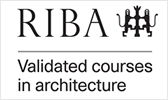
- The Royal Institute of British Architects (RIBA) is the professional members' organisation for architects that champions better buildings, communities, and the environment through architecture. They provide guidance on professional standards, training, support, and recognition that puts their members around the world at the peak of their profession.
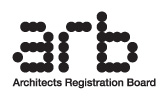
- The Architects Registration Board (ARB) is the UK's statutory body for architects.
Placements
As a graduate of the BS(Hons) Architecture course, you will be ready for professional practice and typically undertake a placement as an Architectural Assistant, RIBA Part 1.
You arrange this yourself, but our staff are on hand to help and your graduate design portfolio should support in your search for professional experience.
Teaching and Assessment
This creative course provides a design-focused education that emphasises considered design of our environment through engagement with contemporary material, social, and environmental issues. We focus on developing individual design creativity and imagination through the use of live projects, field trips, site and building visits.
We have digital fabrication facilities on the 7th floor of the Keyworth Centre, which are integrated with the design studios and completely dedicated to architecture courses. Our facilities include: 3D printing, laser cutting, 6-axis robotic arm, 3D scanning, plotter printing and scanning, aerial drone for photography and videography, digital photographic studio, and visualisation and animation studio, virtual reality headset, and our DARLAB.
You will be required to participate regularly in design studio crits, reviews, lectures, workshops, seminars, and 1:1 tutorials. Architectural study trips abroad also enhance teaching and learning, although these are optional as some students may be unable to travel due to visa or cost restrictions.
You’ll be encouraged to engage in staff practice and research interests and work in teams that include practitioners, specialists, visiting architects, and critics from a range of related disciplines. Our strong links with professional practice is supported by our Architecture Advisory Board, apprenticeship programmes, and our LSBU Architecture Open Lecture Series. Many of our tutors are also practitioners, immersed in architectural practice in London and further afield.
Studio teaching
We offer four vertical design studios addressing contemporary themes:
- Architecture and civic space
- Transformative spatiality
- Performance and curation
- Infrastructure and landscape
Although you will be required to take responsibility for much of your own learning, you will receive considerable support and guidance from staff via course guides, module guides and week to week guidance and tutorial support from the academic staff.
| Lectures, seminars and workshops | Self-directed study | |
|---|---|---|
| Year 1 | 37% | 63% |
| Year 2 | 34% | 66% |
| Year 3 | 37% | 63% |
Personal Tutoring
As a Built Environment and Architecture student, you will be allocated a named tutor during your first three weeks at LSBU. The role of your tutor is to be your primary contact for academic and professional development support.
Your tutor will support you to get the most of your time at LSBU, providing advice and signposting to other sources of support in the University.
Your tutor should be the first person at the university that you speak to if you are having any difficulties that are affecting your work. These could be academic, financial, health-related or another type of problem.
You will have appointments with your personal tutor twice a semester for 30 minutes throughout your course. You can contact your tutor for additional support by email or in person.
People profiles
-
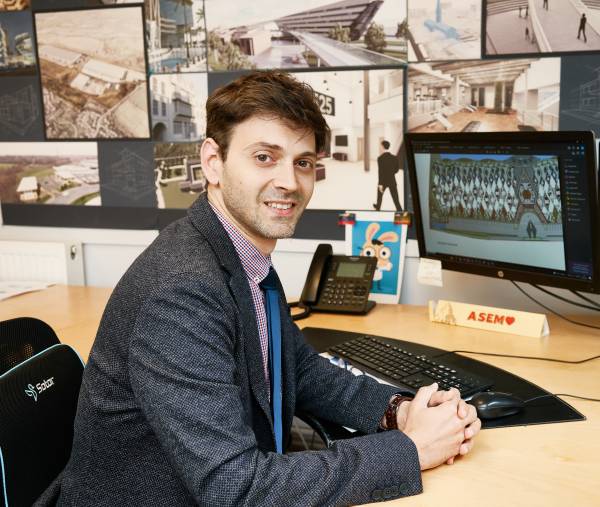
Dr Asem Al Bunni
Built Environment and Architecture -

Mr Carlos Fenick-Sanchez
Built Environment and Architecture -

Mr Yakim Milev
Built Environment and Architecture -
Dr Bertug Ozarisoy
Built Environment and Architecture -
.jpg)
Ms Carlene Prince
Built Environment and Architecture -
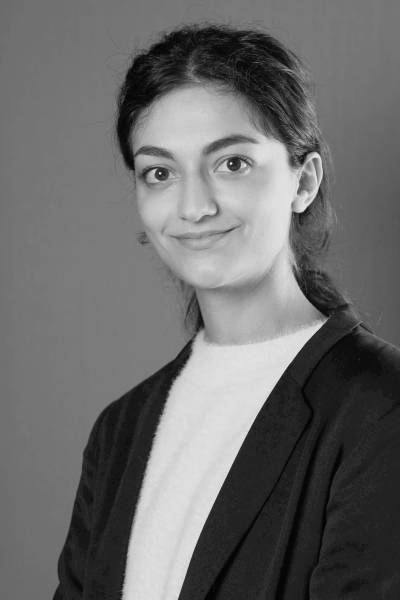
Miss Andrea Tiberi
Built Environment and Architecture -
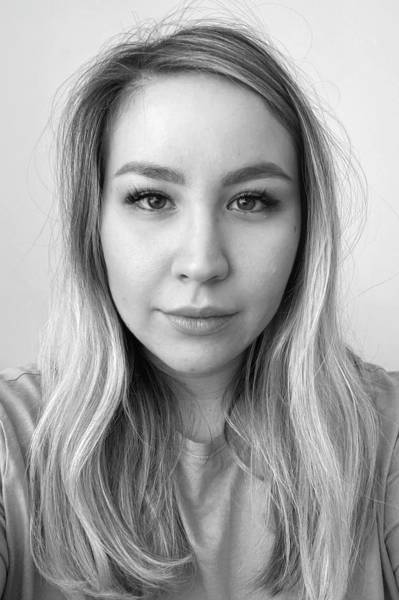
Miss Angela Vanezi
Built Environment and Architecture -
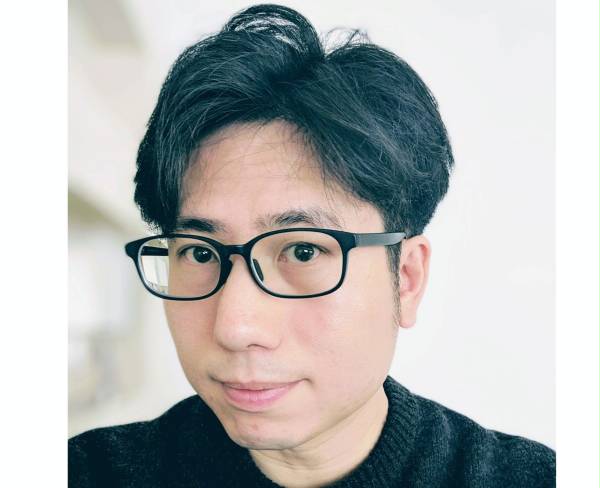
Mr Daniel Wing Hang Tang
Built Environment and Architecture
